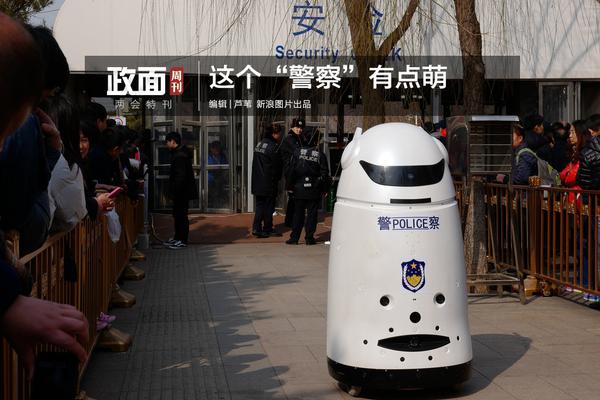
1. The main functions of the operating system: CPU management, storage management, file management, device management and operation management.
2. C [Analysis] The operating system should usually include the following five functional modules: (1) Processor management. When multiple programs run at the same time, solve the processor (CPU) time allocation problem. ( 2) Operation management. The program to complete an independent task and its required data constitute a task.
3. The five functions that computer operating systems usually have are CPU management, storage management, file management, equipment management and job management.
1. The five functions of the operating system are processor management, memory management, device management, file management and job management. Processor Management ProcessorThe most basic function of management is to handle interrupt events. After configuring the operating system, various events can be handled.
2. The main functions of the operating system: CPU management, storage management, file management, device management and operation management.
3. C [Analysis] The operating system should usually include the following five functional modules: (1) Processor management. When multiple programs run at the same time, solve the processor (CPU) time allocation problem. ( 2) Operation management. The program to complete an independent task and its required data constitute a task.
4. CPU management, storage management, file management, equipment management and operation management. According to the query Baidu Education, the five functions that computer operating systems usually have are ___.
The operating system has five functions: processor management: mainly controls and manages the work of the CPU. Storage management: mainly allocate and manage memory. Device management: mainly manage basic input and output devices. File management: responsible for the organization, storage, operation and protection of computer files.
C [Analysis] The operating system should usually include the following five functional modules: (1) Processor management. When multiple programs run at the same time, solve the processor (CPU) time allocation problem. ( 2) Operation management. The program to complete an independent task and its required data constitute a task.
CountThe five functions of computer operating systems are: processor management, memory management, device management, file management and job management. Processor management The most basic function of processor management is to process interrupt events. After configuring the operating system, various events can be processed.
The five functions that computer operating systems usually have are as follows: Processor management: When multiple programs are running at the same time, it solves the problem of processor time allocation. Homework management. Memory management: allocate storage space for each program and the data it uses, and ensure that they do not interfere with each other. Equipment management.
Computer operating systems usually have five functions, which are: Process management: Process management is responsible for managing multiple processes in the computer, including starting, stopping and scheduling the operation of processes.
CPU management, storage management, file management, equipment management and operation management. According to the query Baidu Education, the five functions that computer operating systems usually have are ___.

1. FuckThe five functions of the system are: processor management, memory management, equipment management, file management and operation management. Processor management: The most basic function of processor management is to handle interrupt events. The processor can only detect interrupt events and generate interrupts and cannot process them.
2. The five major functions of the operating system are processor management, memory management, device management, file management and job management. Processor management The most basic function of processor management is to process interrupt events. After configuring the operating system, various events can be processed.
3. The five major functions of the operating system include: process and processor management, operation management, storage management, equipment management and file management.
4. Five major functions of the operating system: process management, memory management, file system management, device management, user interface.Process management The operating system is responsible for managing the processes in the computer, including creating, terminating, scheduling and switching processes.
5. The function of the operating system is mainly reflected in the management of computer resources - microprocessor, memory, external equipment, files and tasks. The operating system sets this management function into the corresponding program management module, and each management module is responsible for a certain function. That is, the five functions of the operating system.
The functions of the computer operating system include: processor management, memory management, device management, file management, job management and other functional modules. Processor management. The most basic function of processor management is to handle interrupt events.The processor can only detect interrupt events and generate interrupts and cannot process them.
The characteristics of the batch processing operating system are: a. Users use computers offline. After the user submits the homework, he no longer deals with the computer until he gets the result. The task submission method can be directly submitted to the management operator of the computing center, or it can be submitted through the remote communication line.
The operating system has five functions: processor management: mainly controls and manages the work of the CPU. Storage management: mainly allocate and manage memory. Device management: mainly manage basic input and output devices. File management: responsible for the organization, storage, operation and protection of computer files.
The operating system mainly consists of 4 functions: managing computer system resources, controlling program execution, improving the human-computer interface and providing support for other software.Manage computer system resources. The resources in the computer system need to be managed and coordinated. The operating system must have this function to ensure fairness and efficiency.
The functions of the operating system include managing the hardware, software and data resources of the computer system, controlling the operation of programs, improving the human-computer interface, supporting other application software, etc.
The main functions of the operating system are: process management, whose work is mainly process scheduling. In the case of a single user and a single task, the processor is only monopolized by one user's task, and the work of process management is very simple.
100 free bonus casino no deposit GCash-APP, download it now, new users will receive a novice gift pack.
1. The main functions of the operating system: CPU management, storage management, file management, device management and operation management.
2. C [Analysis] The operating system should usually include the following five functional modules: (1) Processor management. When multiple programs run at the same time, solve the processor (CPU) time allocation problem. ( 2) Operation management. The program to complete an independent task and its required data constitute a task.
3. The five functions that computer operating systems usually have are CPU management, storage management, file management, equipment management and job management.
1. The five functions of the operating system are processor management, memory management, device management, file management and job management. Processor Management ProcessorThe most basic function of management is to handle interrupt events. After configuring the operating system, various events can be handled.
2. The main functions of the operating system: CPU management, storage management, file management, device management and operation management.
3. C [Analysis] The operating system should usually include the following five functional modules: (1) Processor management. When multiple programs run at the same time, solve the processor (CPU) time allocation problem. ( 2) Operation management. The program to complete an independent task and its required data constitute a task.
4. CPU management, storage management, file management, equipment management and operation management. According to the query Baidu Education, the five functions that computer operating systems usually have are ___.
The operating system has five functions: processor management: mainly controls and manages the work of the CPU. Storage management: mainly allocate and manage memory. Device management: mainly manage basic input and output devices. File management: responsible for the organization, storage, operation and protection of computer files.
C [Analysis] The operating system should usually include the following five functional modules: (1) Processor management. When multiple programs run at the same time, solve the processor (CPU) time allocation problem. ( 2) Operation management. The program to complete an independent task and its required data constitute a task.
CountThe five functions of computer operating systems are: processor management, memory management, device management, file management and job management. Processor management The most basic function of processor management is to process interrupt events. After configuring the operating system, various events can be processed.
The five functions that computer operating systems usually have are as follows: Processor management: When multiple programs are running at the same time, it solves the problem of processor time allocation. Homework management. Memory management: allocate storage space for each program and the data it uses, and ensure that they do not interfere with each other. Equipment management.
Computer operating systems usually have five functions, which are: Process management: Process management is responsible for managing multiple processes in the computer, including starting, stopping and scheduling the operation of processes.
CPU management, storage management, file management, equipment management and operation management. According to the query Baidu Education, the five functions that computer operating systems usually have are ___.

1. FuckThe five functions of the system are: processor management, memory management, equipment management, file management and operation management. Processor management: The most basic function of processor management is to handle interrupt events. The processor can only detect interrupt events and generate interrupts and cannot process them.
2. The five major functions of the operating system are processor management, memory management, device management, file management and job management. Processor management The most basic function of processor management is to process interrupt events. After configuring the operating system, various events can be processed.
3. The five major functions of the operating system include: process and processor management, operation management, storage management, equipment management and file management.
4. Five major functions of the operating system: process management, memory management, file system management, device management, user interface.Process management The operating system is responsible for managing the processes in the computer, including creating, terminating, scheduling and switching processes.
5. The function of the operating system is mainly reflected in the management of computer resources - microprocessor, memory, external equipment, files and tasks. The operating system sets this management function into the corresponding program management module, and each management module is responsible for a certain function. That is, the five functions of the operating system.
The functions of the computer operating system include: processor management, memory management, device management, file management, job management and other functional modules. Processor management. The most basic function of processor management is to handle interrupt events.The processor can only detect interrupt events and generate interrupts and cannot process them.
The characteristics of the batch processing operating system are: a. Users use computers offline. After the user submits the homework, he no longer deals with the computer until he gets the result. The task submission method can be directly submitted to the management operator of the computing center, or it can be submitted through the remote communication line.
The operating system has five functions: processor management: mainly controls and manages the work of the CPU. Storage management: mainly allocate and manage memory. Device management: mainly manage basic input and output devices. File management: responsible for the organization, storage, operation and protection of computer files.
The operating system mainly consists of 4 functions: managing computer system resources, controlling program execution, improving the human-computer interface and providing support for other software.Manage computer system resources. The resources in the computer system need to be managed and coordinated. The operating system must have this function to ensure fairness and efficiency.
The functions of the operating system include managing the hardware, software and data resources of the computer system, controlling the operation of programs, improving the human-computer interface, supporting other application software, etc.
The main functions of the operating system are: process management, whose work is mainly process scheduling. In the case of a single user and a single task, the processor is only monopolized by one user's task, and the work of process management is very simple.
Hearthstone arena deck Builder
author: 2025-02-23 14:15Hearthstone Arena class tier list 2024
author: 2025-02-23 13:52bingo plus update today Philippines
author: 2025-02-23 13:40UEFA Champions League live streaming free
author: 2025-02-23 12:18 Casino Plus
Casino Plus
698.42MB
Check UEFA EURO
UEFA EURO
895.78MB
Check UEFA Europa League
UEFA Europa League
282.29MB
Check Europa League app
Europa League app
971.89MB
Check DigiPlus Philippine
DigiPlus Philippine
752.75MB
Check UEFA TV
UEFA TV
274.51MB
Check bingo plus update today
bingo plus update today
119.43MB
Check Walletinvestor digi plus
Walletinvestor digi plus
685.68MB
Check casino plus free 100
casino plus free 100
723.99MB
Check DigiPlus stock
DigiPlus stock
214.47MB
Check Hearthstone deck
Hearthstone deck
652.36MB
Check DigiPlus
DigiPlus
145.92MB
Check UEFA Europa League
UEFA Europa League
721.57MB
Check Casino Plus app
Casino Plus app
335.81MB
Check UEFA European championship
UEFA European championship
878.84MB
Check Casino Plus
Casino Plus
761.85MB
Check bingo plus update today Philippines
bingo plus update today Philippines
292.39MB
Check UEFA Champions League live streaming app
UEFA Champions League live streaming app
252.87MB
Check PAGCOR online casino free 100
PAGCOR online casino free 100
112.49MB
Check Casino Plus GCash login
Casino Plus GCash login
181.78MB
Check 100 free bonus casino no deposit GCash
100 free bonus casino no deposit GCash
651.87MB
Check PAGCOR online casino free 100
PAGCOR online casino free 100
751.61MB
Check UEFA TV
UEFA TV
354.33MB
Check bingo plus update today
bingo plus update today
719.66MB
Check UEFA live free
UEFA live free
392.37MB
Check UEFA Champions League live
UEFA Champions League live
344.72MB
Check UEFA Champions League live streaming free
UEFA Champions League live streaming free
685.86MB
Check Europa League app
Europa League app
131.33MB
Check Casino redeem
Casino redeem
286.68MB
Check Arena plus APK
Arena plus APK
818.26MB
Check bingo plus update today
bingo plus update today
994.63MB
Check UEFA Champions League live streaming free
UEFA Champions League live streaming free
454.45MB
Check TNT Sports
TNT Sports
176.68MB
Check Bingo Plus stock
Bingo Plus stock
144.96MB
Check UEFA TV
UEFA TV
629.32MB
Check 100 free bonus casino no deposit GCash
100 free bonus casino no deposit GCash
156.96MB
Check
Scan to install
100 free bonus casino no deposit GCash to discover more
Netizen comments More
2535 Hearthstone arena deck Builder
2025-02-23 14:51 recommend
1223 TNT Sports
2025-02-23 13:52 recommend
1262 100 free bonus casino no deposit GCash
2025-02-23 13:44 recommend
712 Arena plus APK
2025-02-23 13:21 recommend
862 LR stock price Philippines
2025-02-23 12:39 recommend